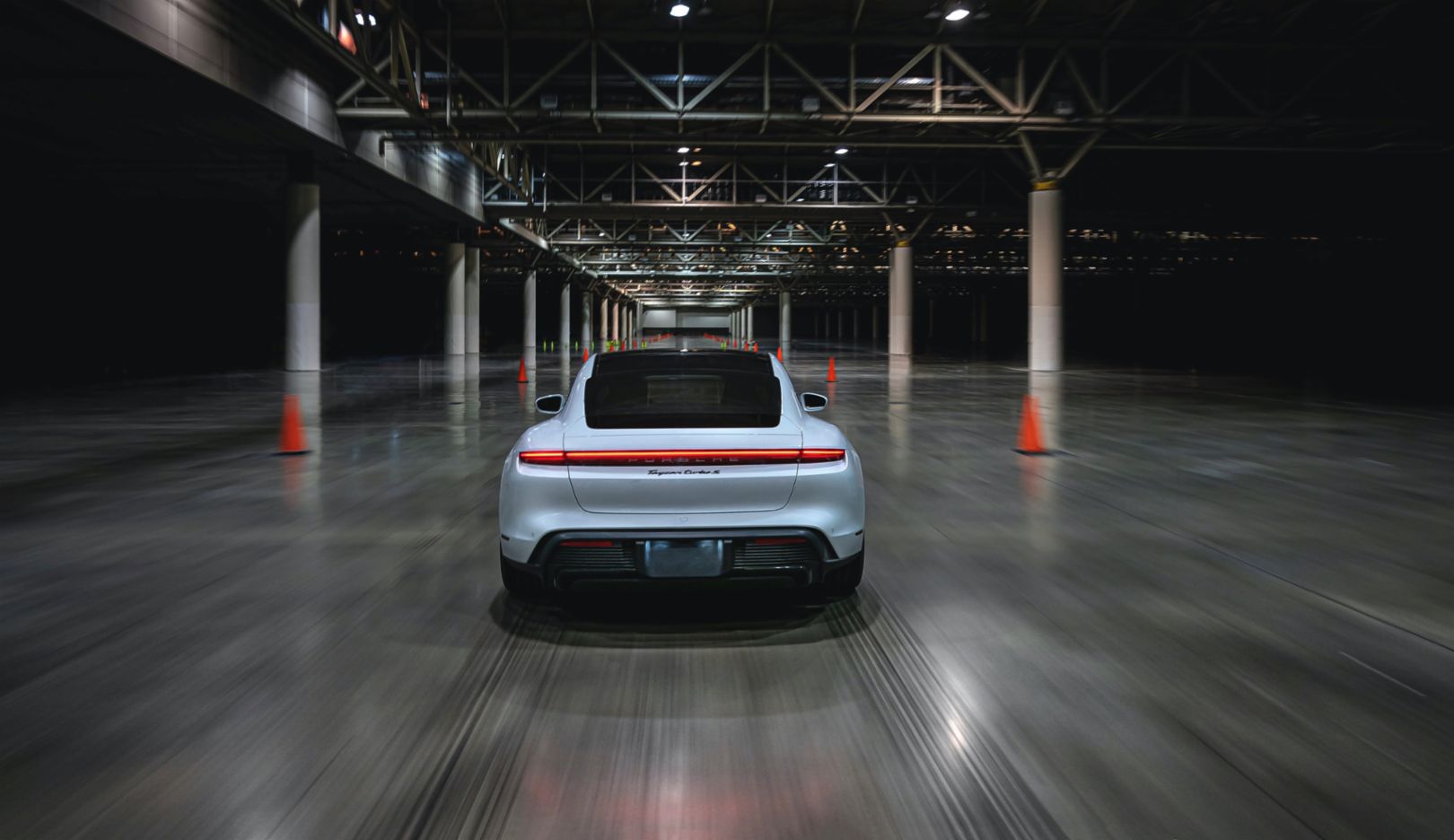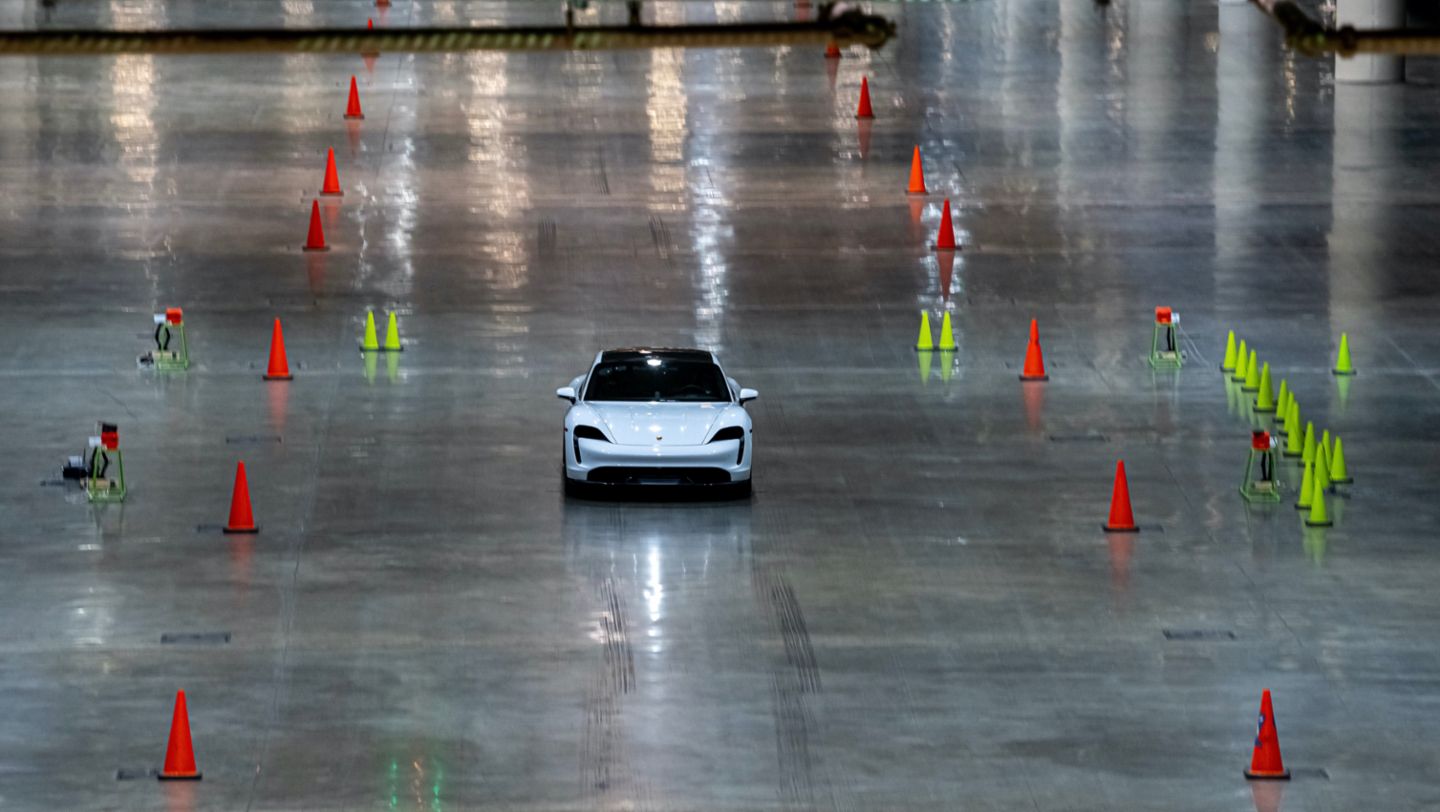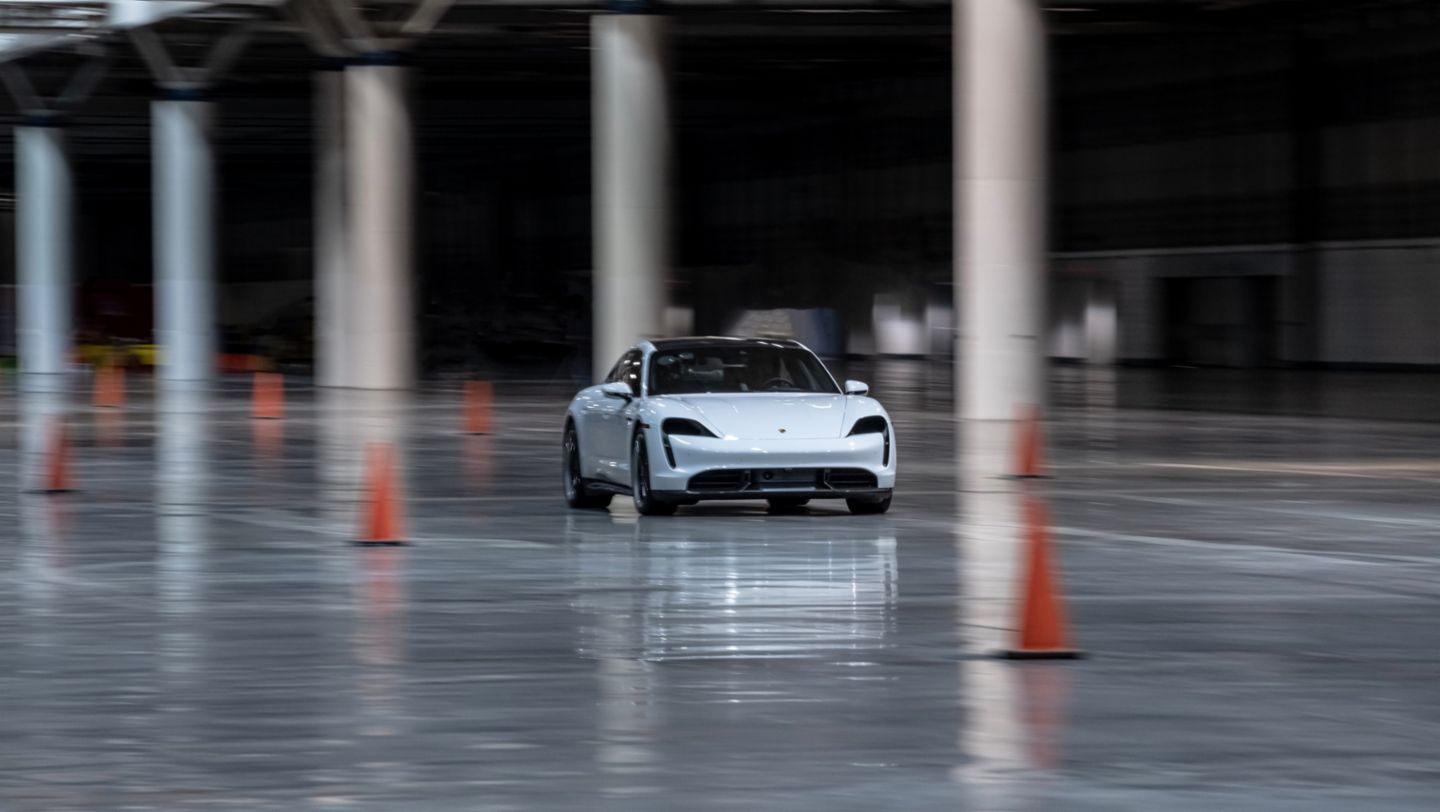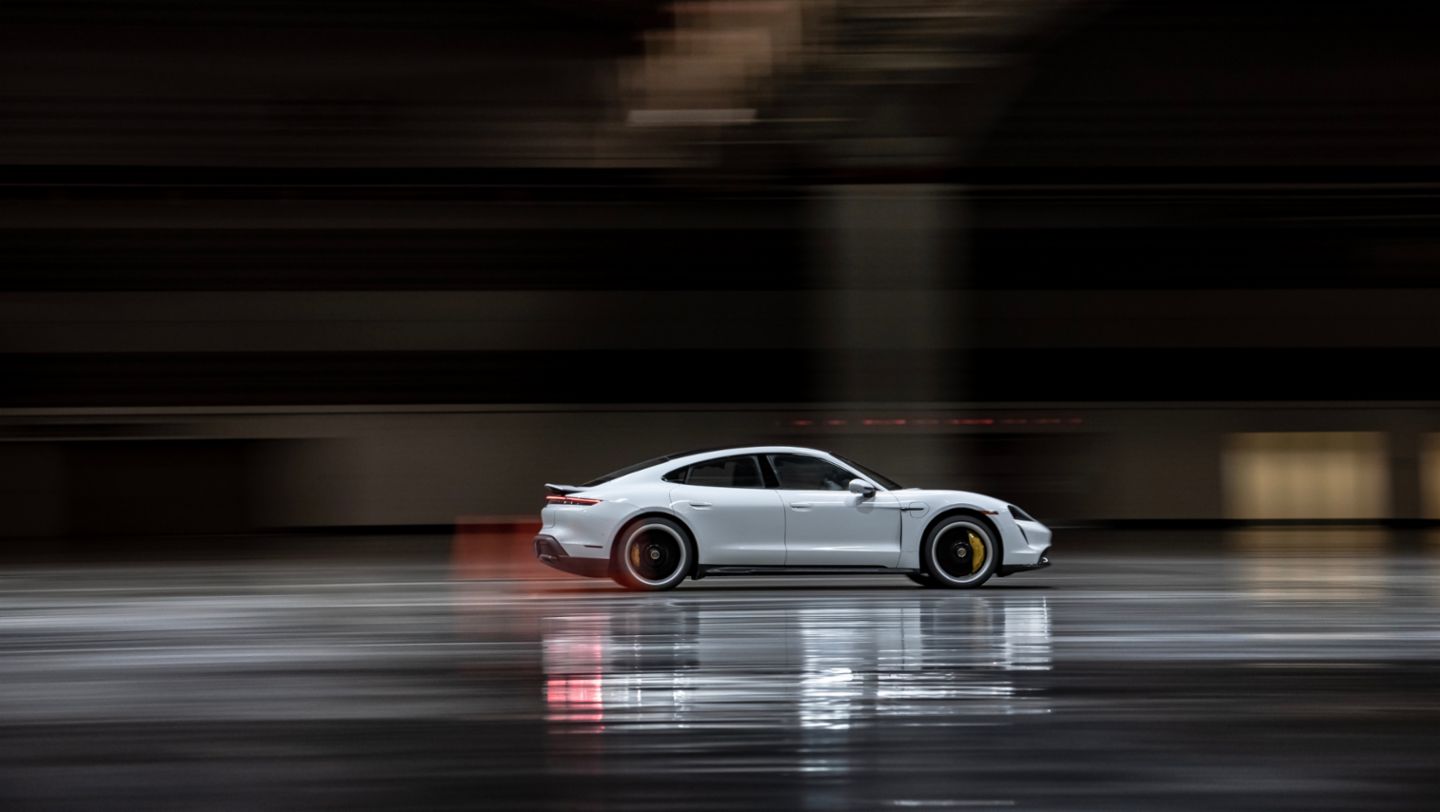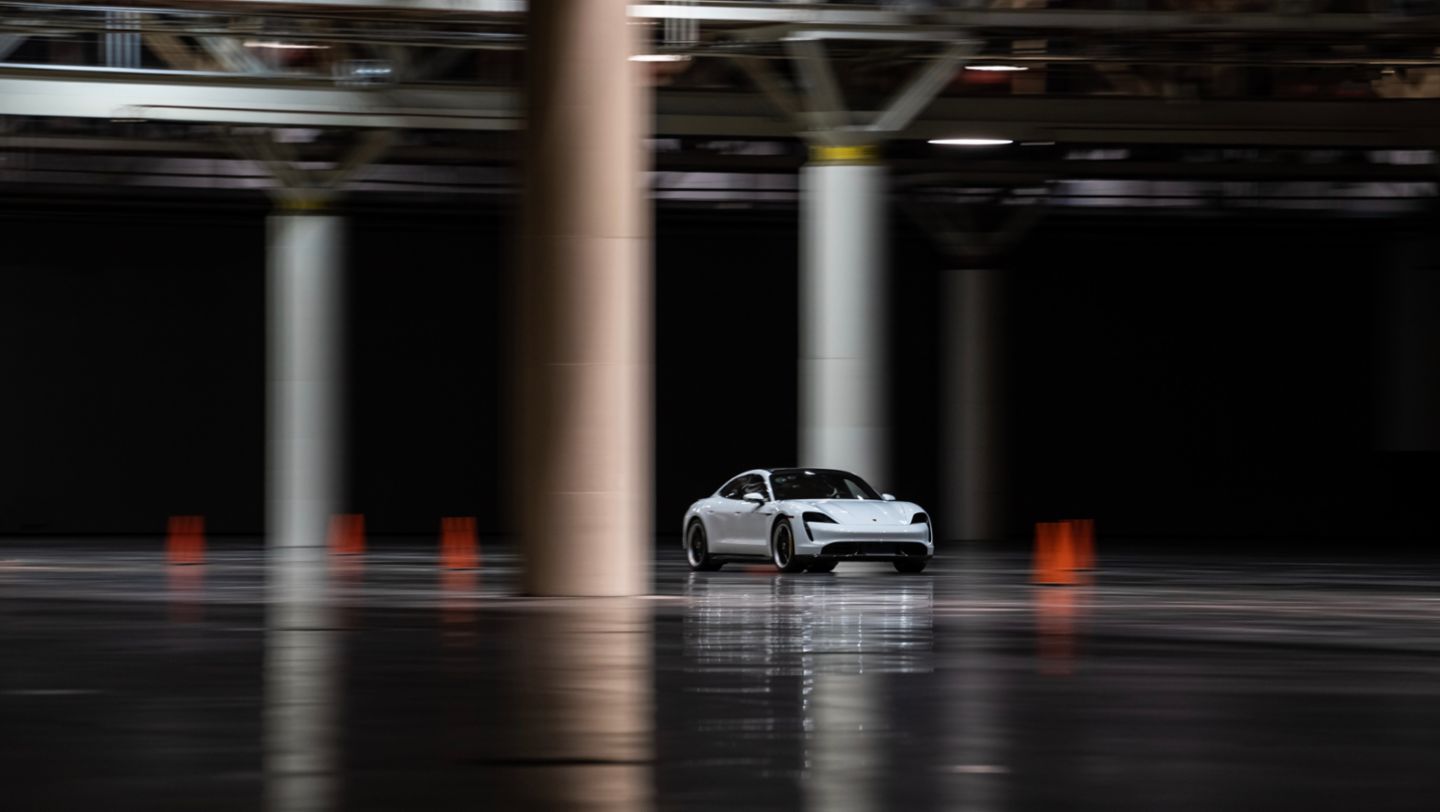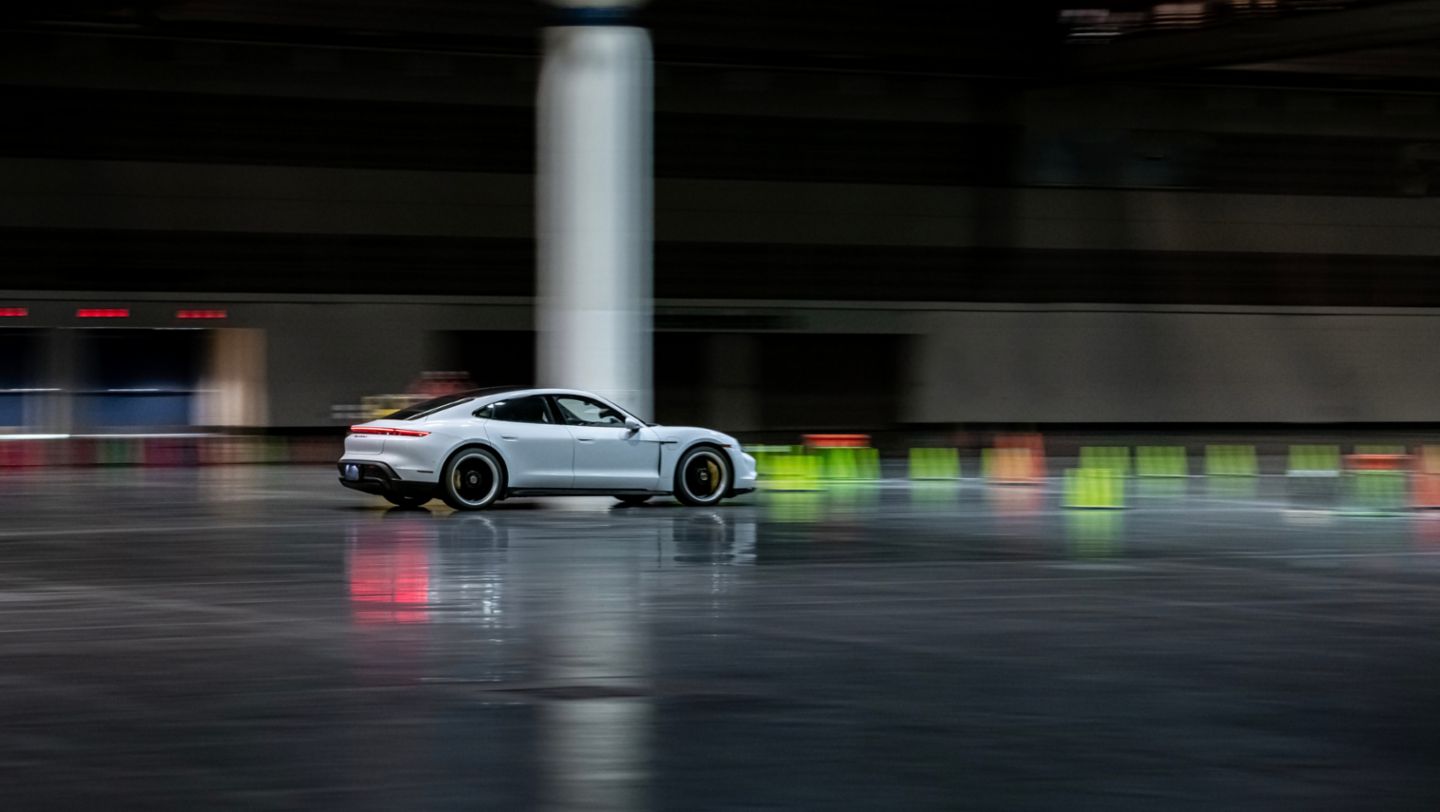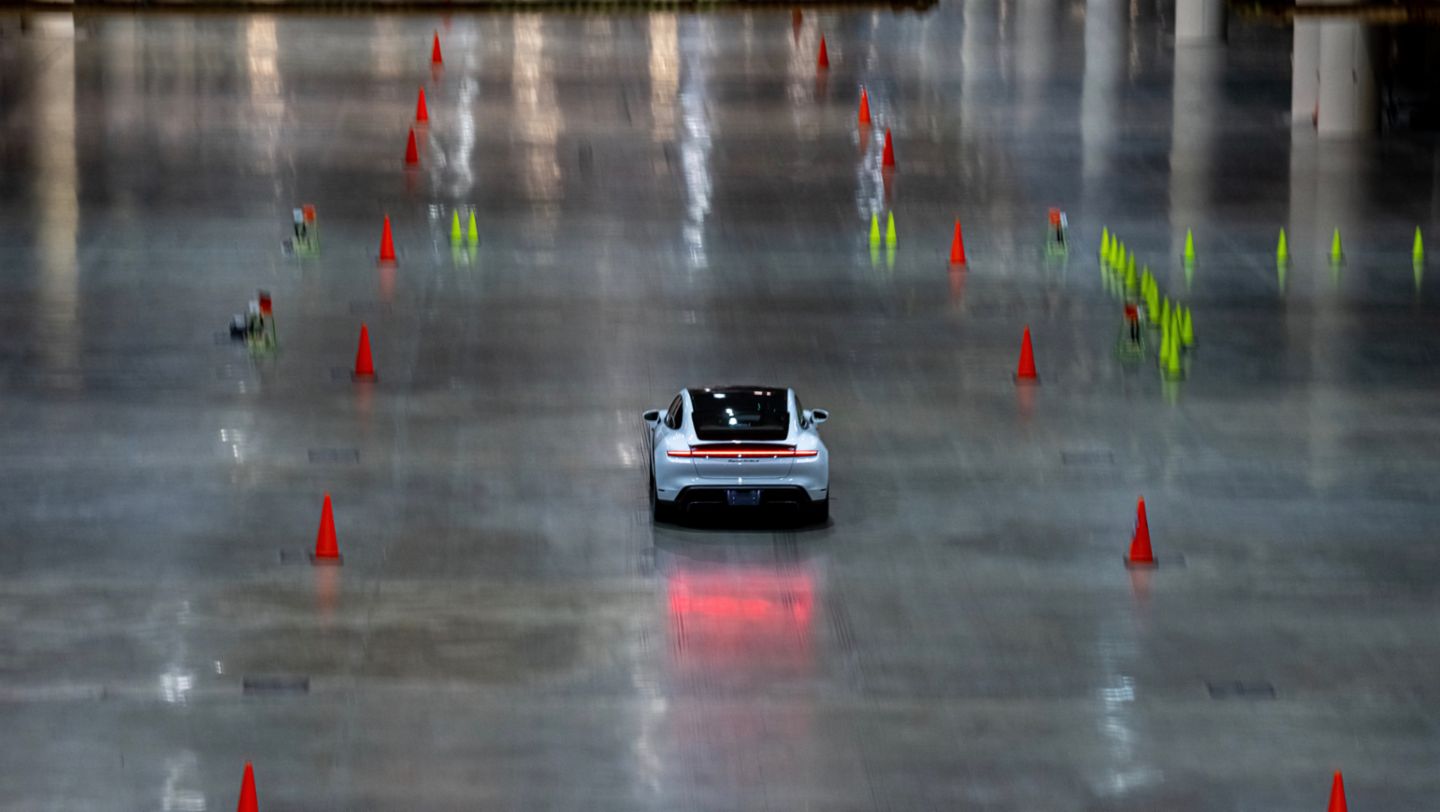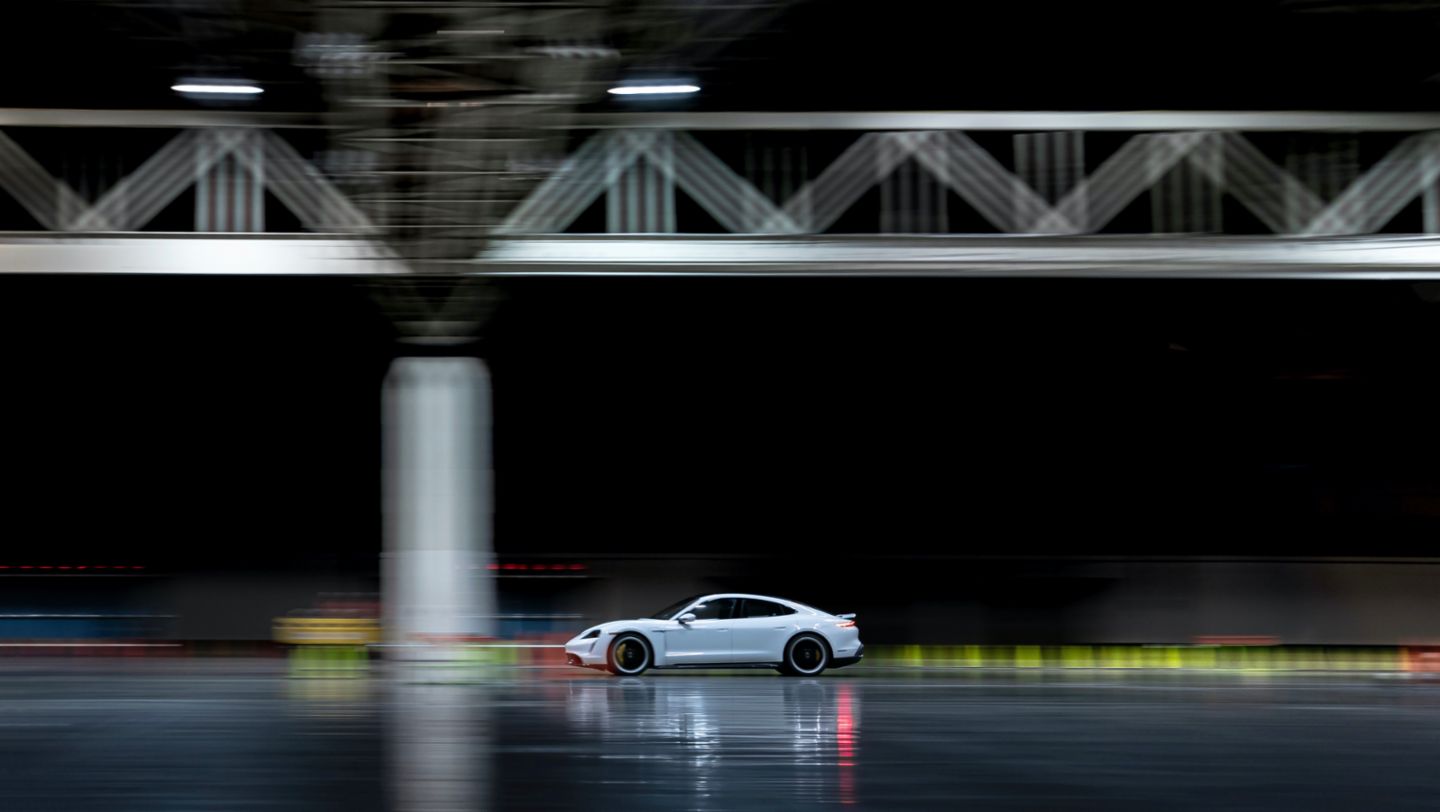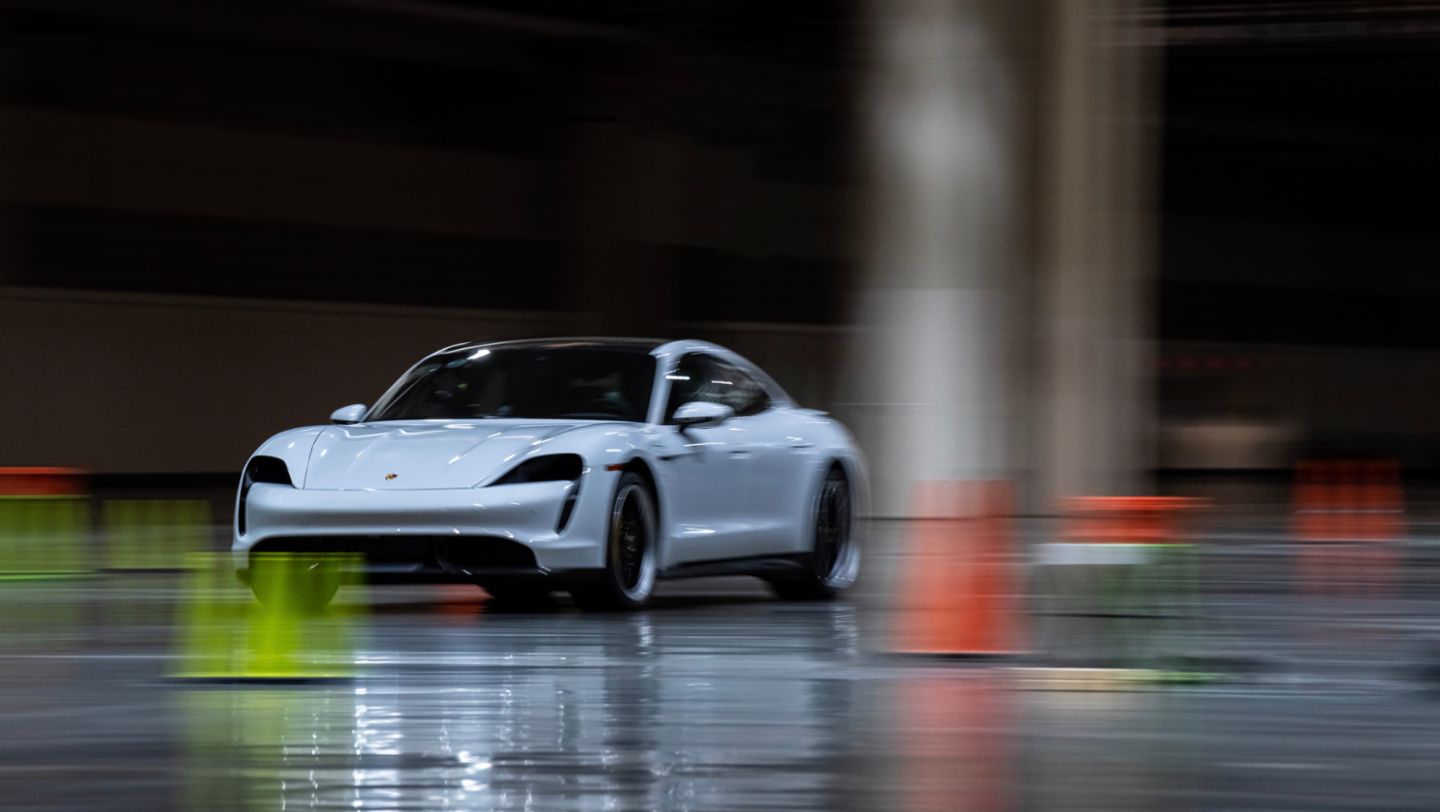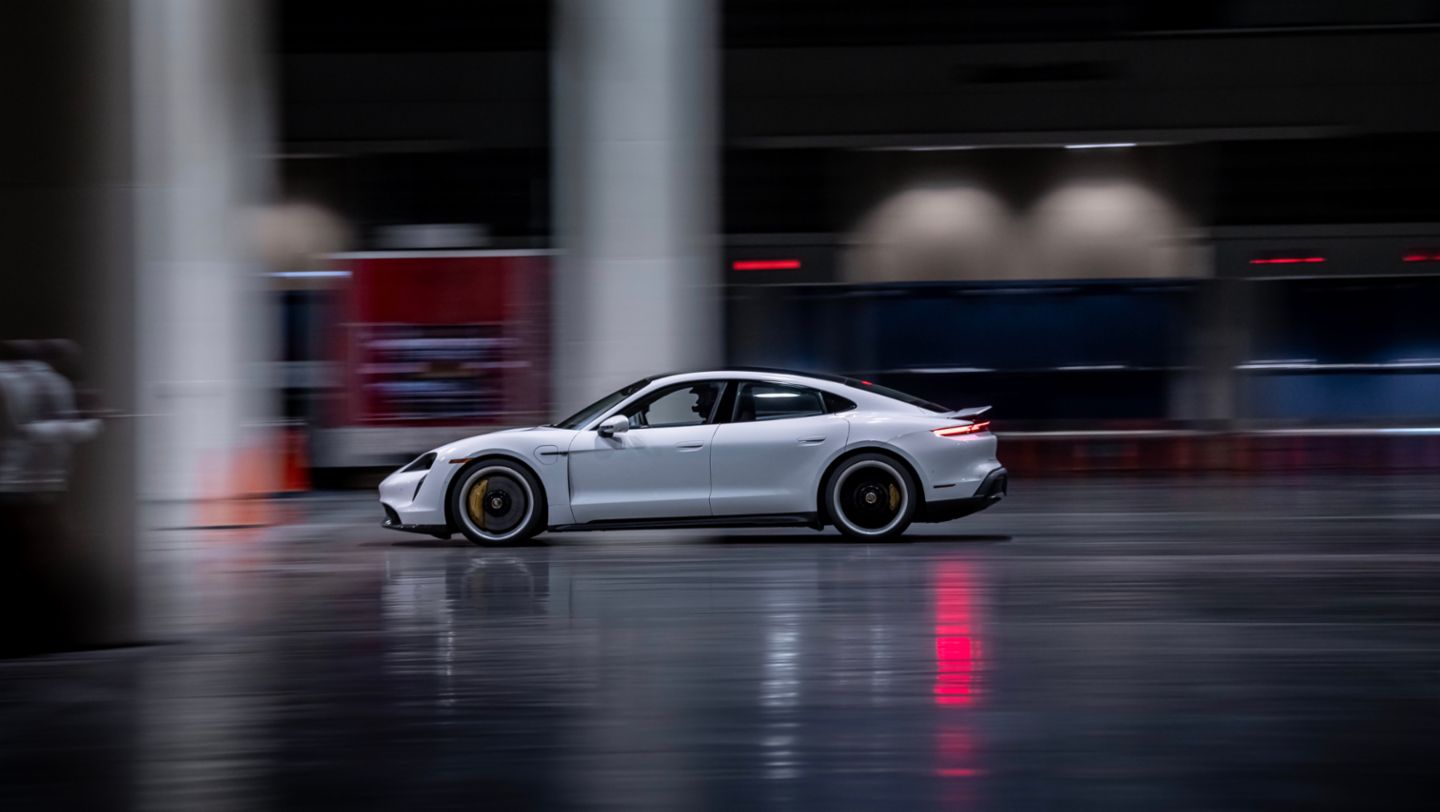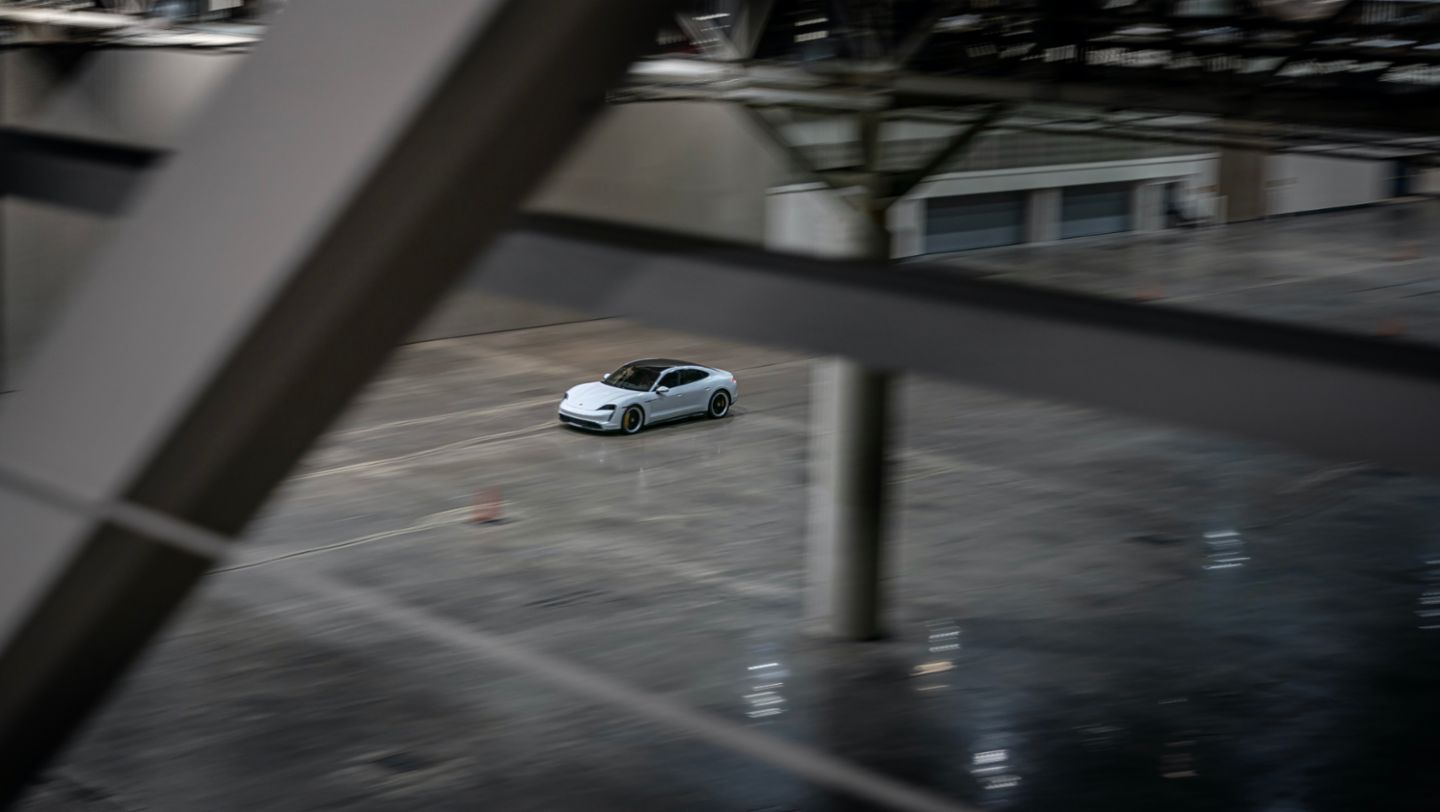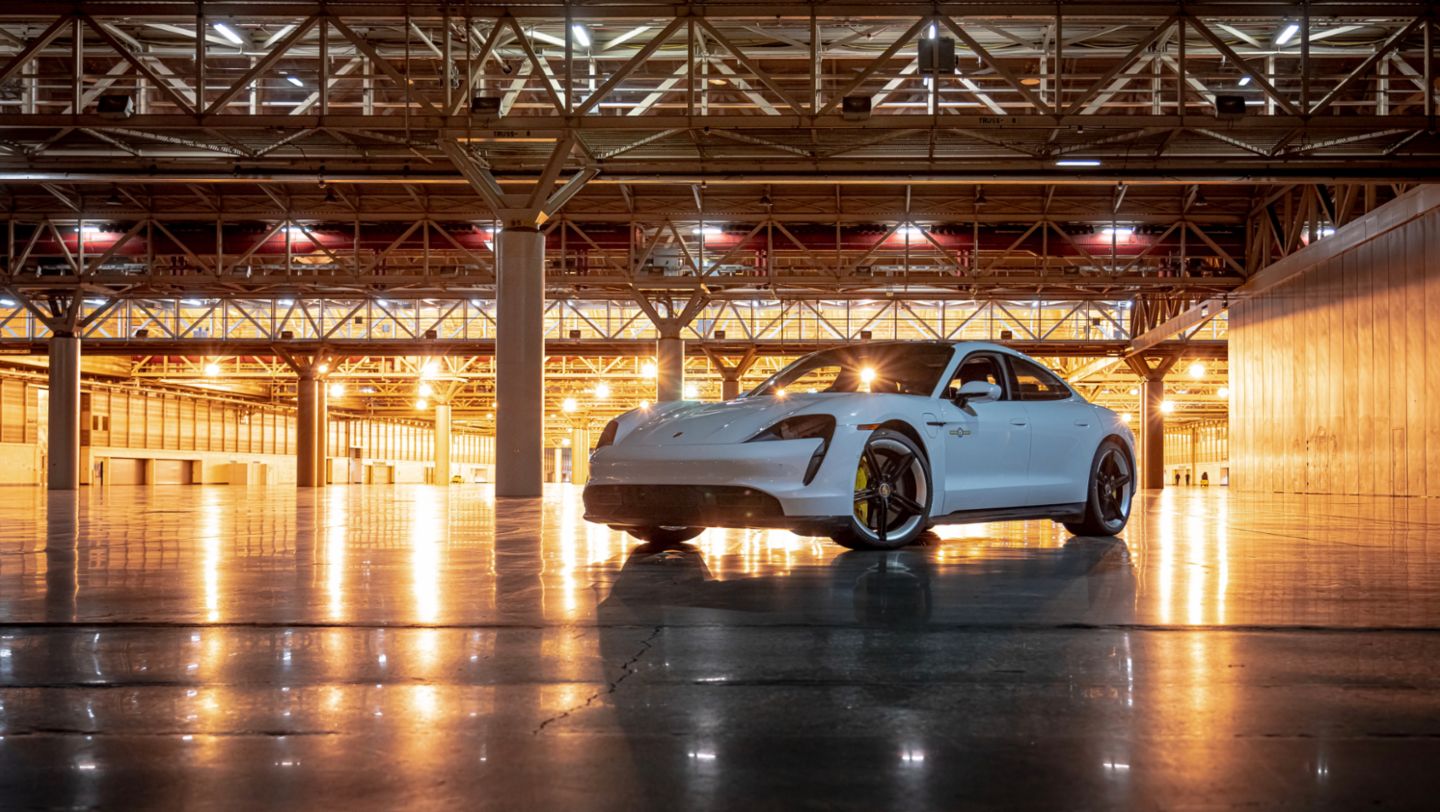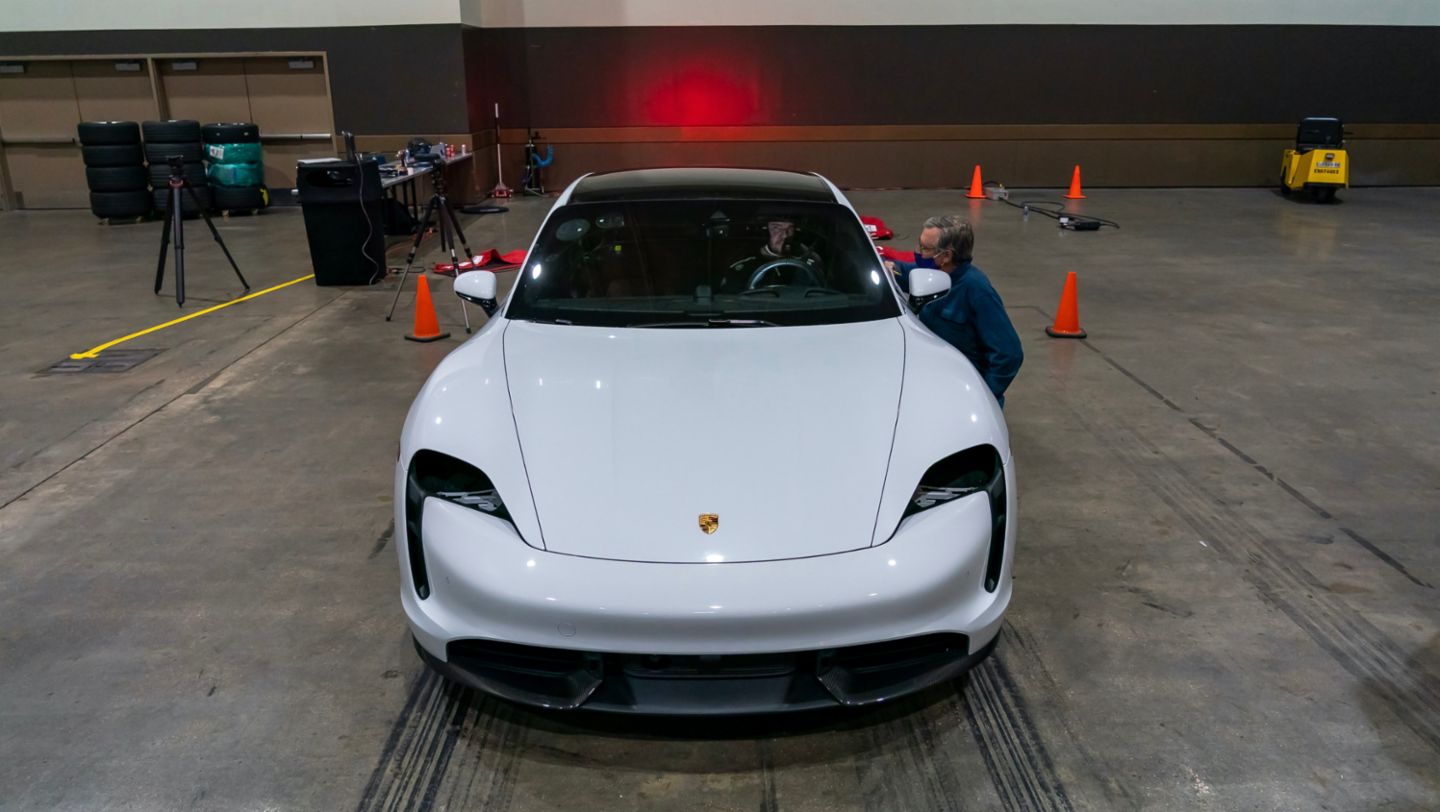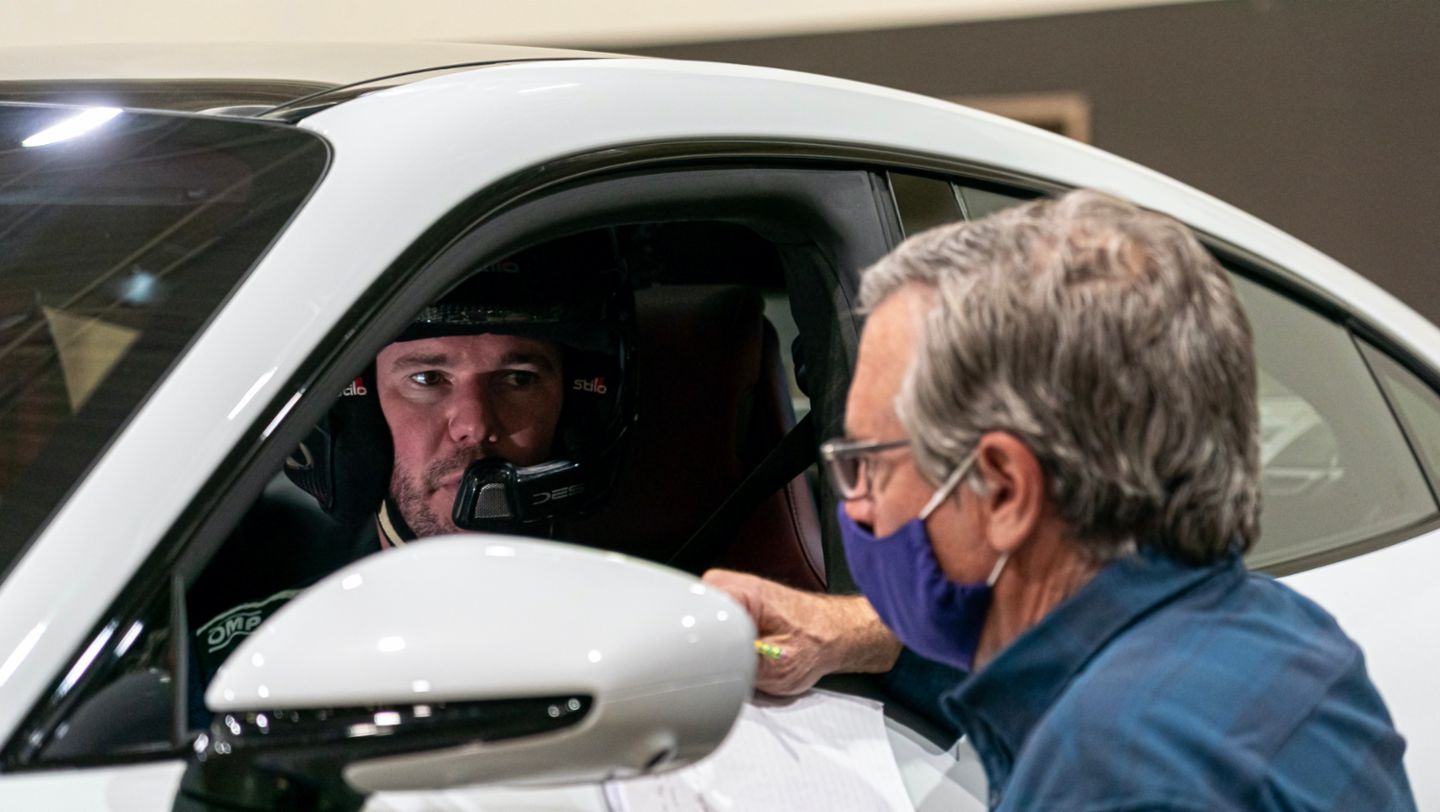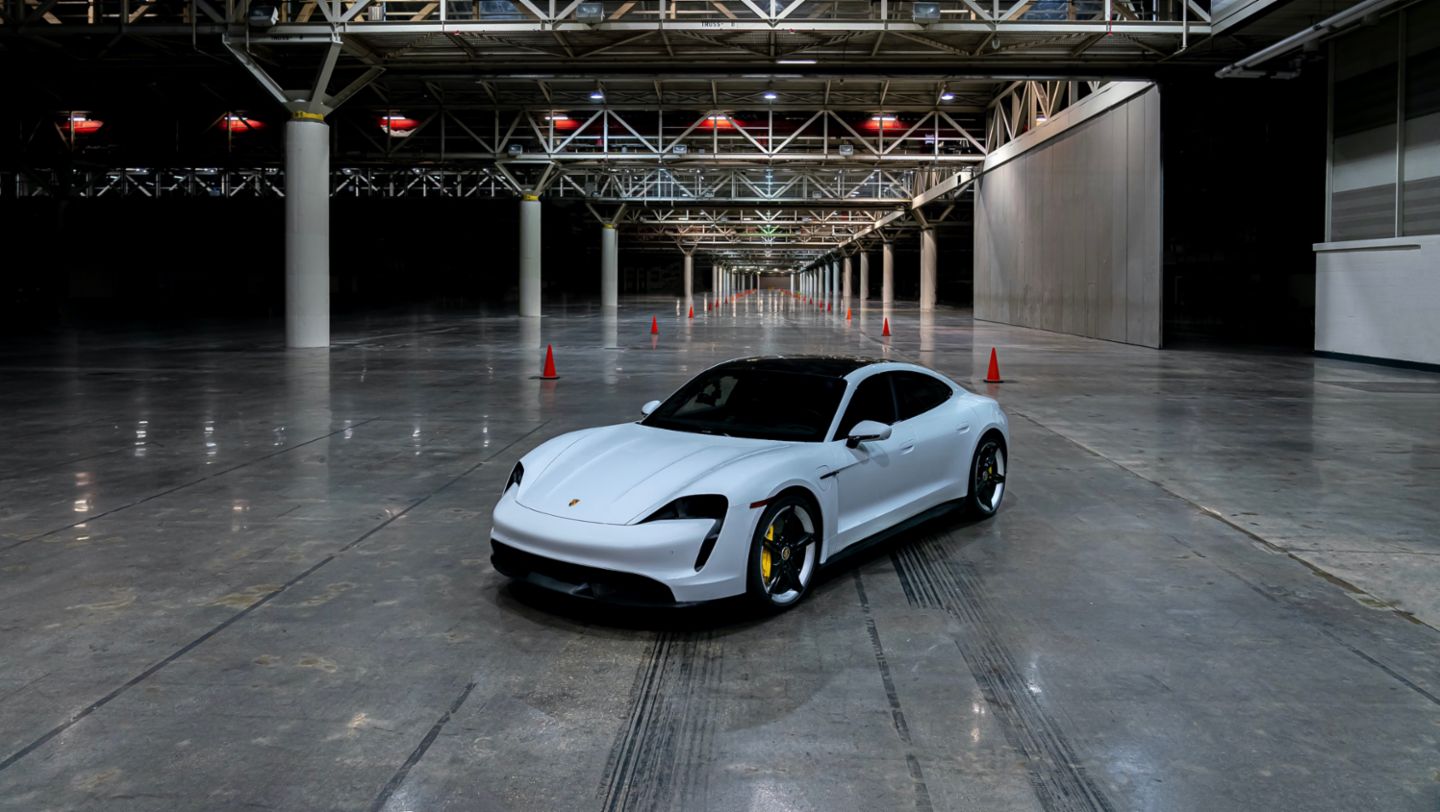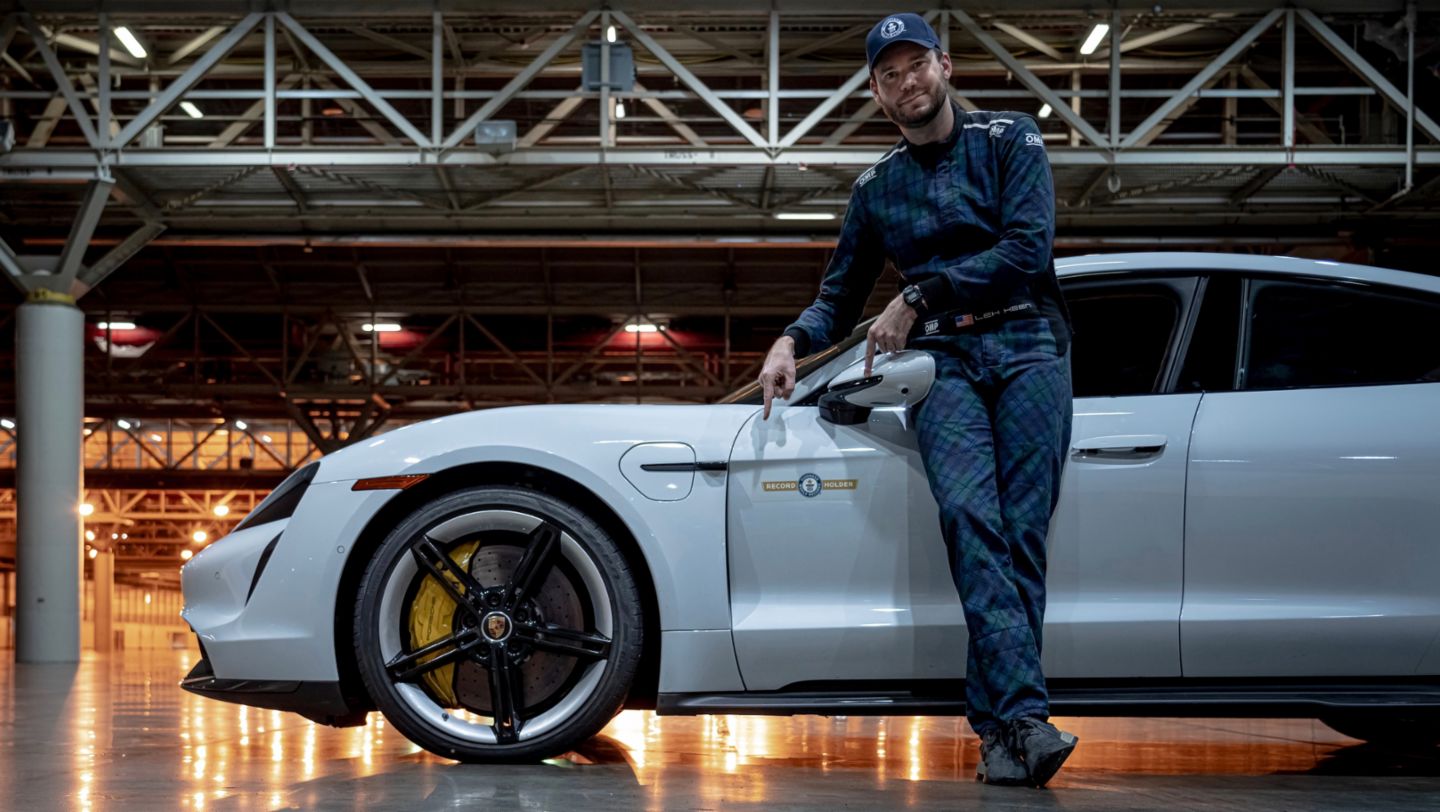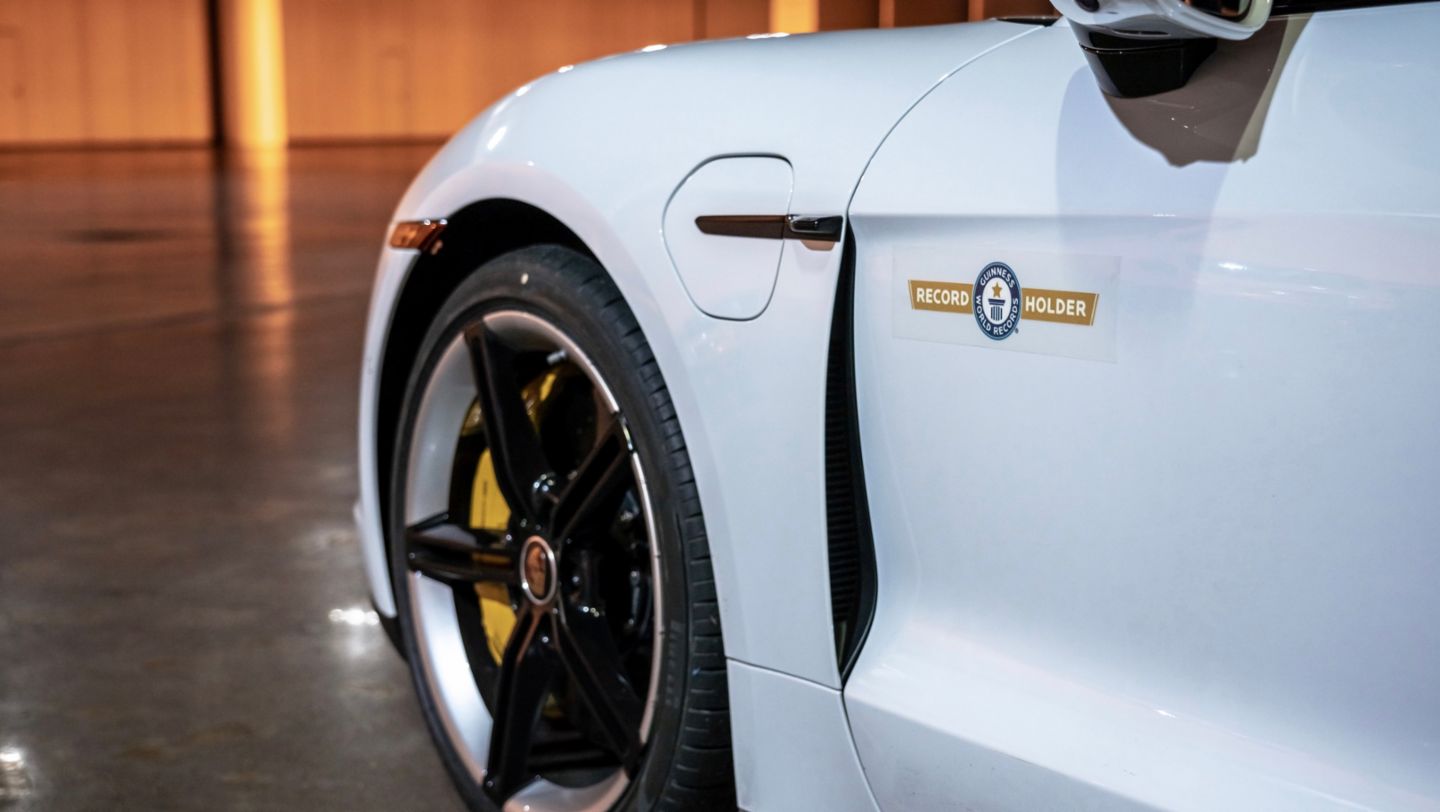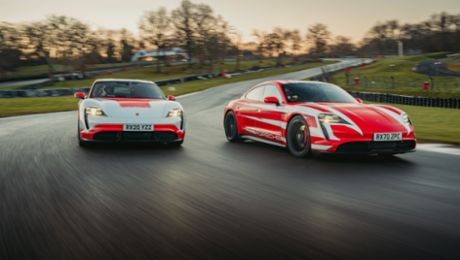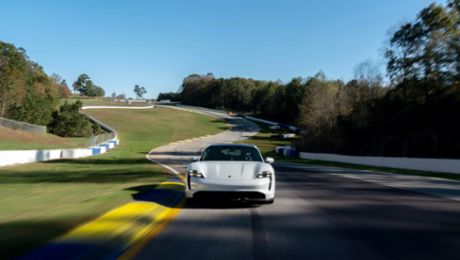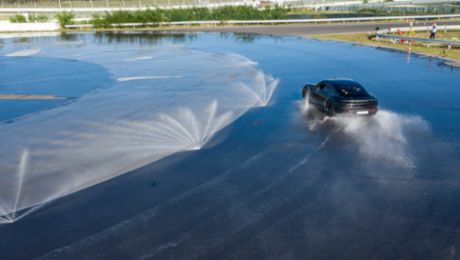Even when circumstances mean that being indoors is the safe and, at times, unexciting option, racer Leh Keen recently found a way to make being inside considerably less boring.
There’s a Guinness World Records title for the fastest speed by a vehicle indoors – and, until recently, it stood at 138.4 km/h. The rules – strictly enforced by Guinness World Records – are daunting. Keen had to start his record attempt and finish it at a standstill, all within the space of the building – there could be no run up, no safety net, no doors open and therefore no escape route. For good reasons, therefore, the record has stood for seven years.
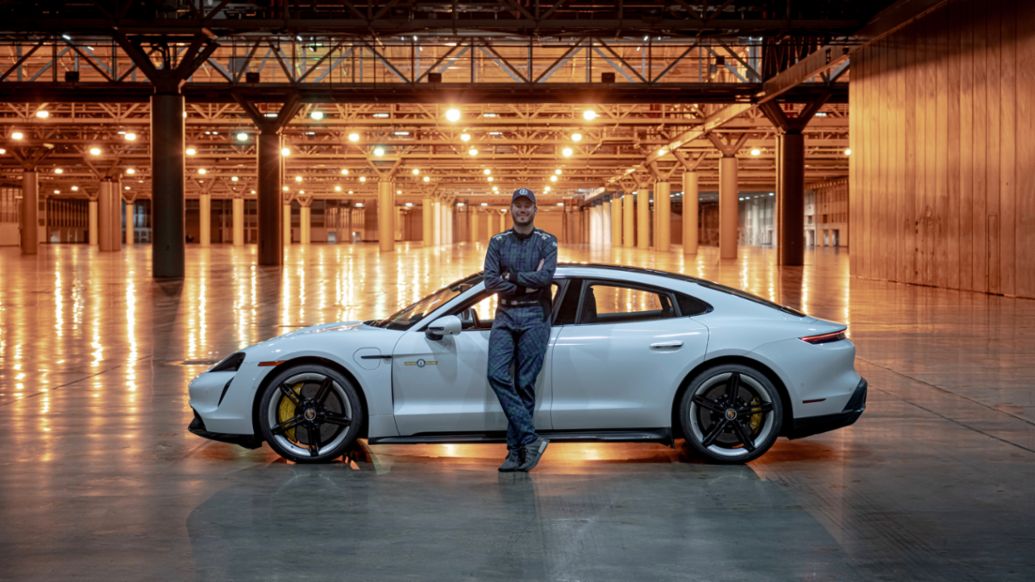
Nevertheless, Keen proceeded enthusiastically with his planning. He required a car that was surefooted in challenging conditions, a vehicle that’s among the hardest accelerating and, crucially, hardest decelerating cars on sale today and that he would trust his life with in order to break the record safely. The car that met this criteria was the all-electric Taycan Turbo S (Taycan Turbo S (Predecessor model)), with all-wheel drive to maximise grip, powerful carbon ceramic brakes and the ability to accelerate to 100 km/h from a standstill in just 2.8 seconds.
Selecting the right building was just as challenging. Enter the Ernest N. Morial Convention Centre in New Orleans, Louisiana. At just over one million square feet, the convention centre boasts the largest contiguous exhibit hall in the United States, ideal for the distance it provided. However, like many other indoor facilities, the polished concrete surface replicated ice when being driven over at speed.
“I didn’t really appreciate the scale of the record attempt until my first exploratory run. The surface is so unpredictable, so slick, that you have to have complete trust in your car. It truly was like ice – and you’re accelerating flat out, facing a really hard wall at the end. Suddenly, even in a massive space like the one we had, it seems very small,” said Keen after his record attempt. “I could feel the Taycan’s systems figuring it out, working so hard to keep me heading straight – it was such an impressive feat. To accelerate so hard on such an erratic surface was incredible. Not for a moment did a doubt I could do it.”
Keen’s strategy was to build up slowly, with low speed exploratory runs. The stock road tyres were preheated as a precaution. When it came to the record attempt, one run was all it took. “I did take a moment on the starting line – knowing I was going to have to go as fast as I could, and stop again, all before reaching the wall I was facing. It got my attention. I used the car’s launch control and the Taycan just hooked up – the sensation of speed indoors, even in such a big space, is enormous – that wall rushed up fast. I was gentle on the brakes in the end – the Taycan’s brakes were more than up to the job. Of course, I didn’t look down at my speed so it came as a surprise and a relief that I’d beaten the record, and by such a margin. It was a rush! I’m thankful to Porsche for trusting my abilities and for their preparations and encouragement – 165,1 km/h inside a building. What was I thinking?”
Info
The Guinness World Records title for the fastest speed achieved by a vehicle indoors was confirmed by independent adjudicators as 165,1 km/h – set by Leh Keen at the New Orleans Convention Centre in a Porsche Taycan Turbo S.
